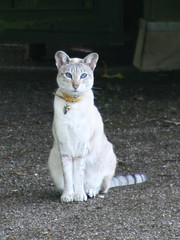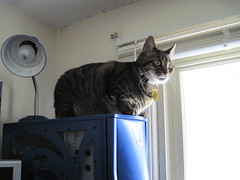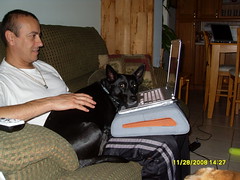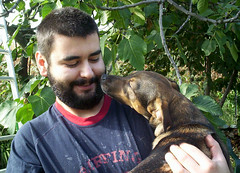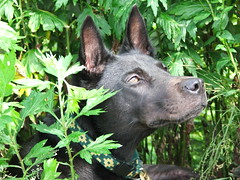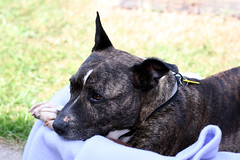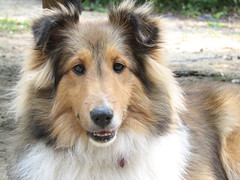Supporting Radiation Treatments Naturally in Dogs and Cats with cancer
Thursday, July 25th, 2013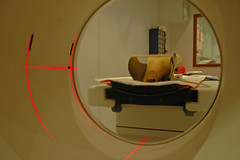 Radiation can be a very effective treatment for certain types of cancer, especially the tumors that are very locally invasive but slow to spread to other regions of the body. However it is also one of the hardest on our animal friends. Not only is there a risk of damaging healthy tissue but the largest issue is that full anesthesia is required for every treatment and often times treatments are required at least weekly and many times daily or multiple times a week. That is a lot of anesthesia for an animal who is already fighting cancer.
Radiation can be a very effective treatment for certain types of cancer, especially the tumors that are very locally invasive but slow to spread to other regions of the body. However it is also one of the hardest on our animal friends. Not only is there a risk of damaging healthy tissue but the largest issue is that full anesthesia is required for every treatment and often times treatments are required at least weekly and many times daily or multiple times a week. That is a lot of anesthesia for an animal who is already fighting cancer.
So should we completely run out doing radiation? I don’t think so. There are certain cancers that you can get a cure from it and in the case of bone cancer sometimes one or two treatments can significantly help with pain. And the machines used to deliver radiation are getting better and more exact. There are now linear accelerators that have built in CAT scan capabilities so that the technician can see exactly where the tumor is while they are dosing it with radiation.
Is there things we can do to support our animal companions when they are going through radiation? You bet there is!
So if you haven’t already caught on to it, I’m a large supporter of acupuncture. Here is somewhere that it can be very important. Not only to help our animals fight the cancer but to promote helping from radiation damaged tissue and help clear the anesthesia and its side effects from the body. See Acupuncture for animals – stoking the healing power within.
 There are also some very important herbs that can help not just with healing and supporting the body but also with enhancing the effects of the radiation treatments. Here’s some herbals to consider during radiation treatment.
There are also some very important herbs that can help not just with healing and supporting the body but also with enhancing the effects of the radiation treatments. Here’s some herbals to consider during radiation treatment.
- Milk Thistle is a wonderful herbal for preventing and repairing chemotherapy and radiation damage to tissues through its antioxidant effects. It also helps support the liver which processes some of the anesthesia drugs. It has been shown that milk thistle enhances the effects of both radiation and chemo, making them work better to destroy cancer cells.
- Ginkgo has actually been shown to sensitive cancer cells to radiation. In addition it helps support blood flow which can aid in healing damaged tissue and helps to support the brain by increasing blood flow. I use a mixture of ginkgo and hawthorn called heart and brain support
- Formulas that contain Tao Ren or Xing Ren also have been shown to enhance radiations effects in killing cancer cells. These formulas including Xue Fu Zhu Yu Tang, Ge Xia Zhu Yu Tang, Shao Fu Zhu Yu Tang or Sanshedan Chuanbeiye. Generally for animals undergoing radiation I use Xue Fu Zhu Yu Tang for tumors in the front half of the body and Shao Fu Zhu Yu Tang for tumors in the back half. Sanshedan Chuanbeiye can be used for any tumor. See Herbal treatments holding cancer at bay for more about these herbal formulas
One more thing to note. Artemisinin absolutely should not be used if radiation therapy is being done. It should be stopped three days before the first treatment and not restarted for a month after the last radiation treatment. Radiation blasts iron from cancer cells into the surrounding healthy tissue and artemisinin can damage healthy cells if used with radiation.
As with all article in this book and on this blog please check with your animals primary care veterinarian before making any changes in their protocol.
Back to Integrative and Holistic Approaches for treating cancer in animals.




